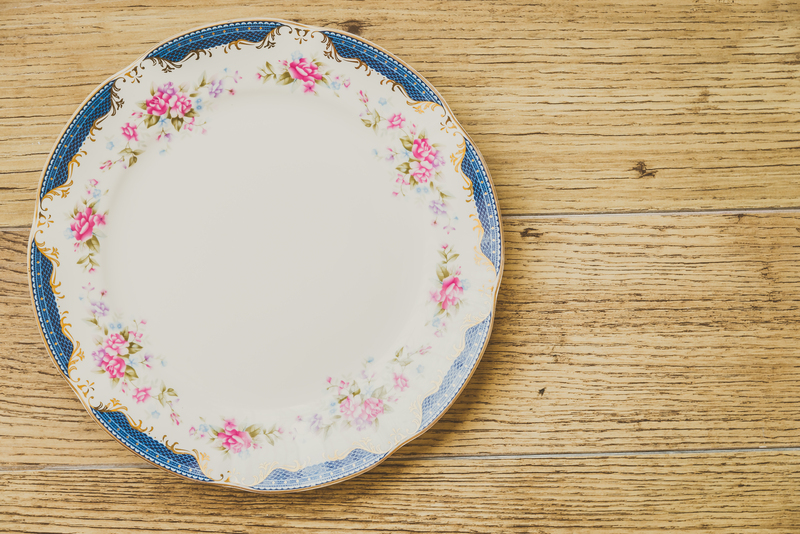Creative Solutions for Disposing and Recycling Old Pots and Pans
Are old pots and pans cluttering up your kitchen cabinets? Wondering what to do with cookware that's scratched, warped, or simply no longer in use? Disposing of worn-out kitchenware raises important concerns about sustainability and waste. Instead of tossing your cookware in the trash, you can explore a range of eco-friendly, inventive, and practical ways to recycle old pots and pans. This comprehensive guide will help you find creative solutions to give your pots and pans new life--or at least, ensure they're disposed of responsibly.
Why Properly Disposing of Old Pots and Pans Matters
It's easy to overlook the environmental impact of cookware disposal. Most pots and pans are made from durable, non-biodegradable materials like stainless steel, aluminum, cast iron, copper, and coated nonstick surfaces. Simply throwing them away means they end up in landfills, where they take up space and may leach unwanted substances into the earth.
- Metal cookware takes centuries to decompose.
- Nonstick coatings may release toxic chemicals if improperly handled.
- Large or heavy pans require special waste processing methods.
Learning how to recycle cookware and find second-life solutions not only declutters your home but also helps conserve natural resources, minimize landfill waste, and support local communities. Let's explore the many options available for repurposing, donating, or recycling your old pots and pans.

Can You Recycle Old Pots and Pans?
Yes--recycling old pots and pans is possible, but the process depends on the material and local recycling regulations. Not all curbside recycling programs accept cookware, so it's important to know your options.
- Stainless Steel & Aluminum: Most scrap metal recycling facilities will accept these. Remove all plastic, rubber, or wooden handles first.
- Cast Iron: Hefty and valuable, cast iron can be recycled as scrap metal or refurbished for new users.
- Nonstick Pans: These often require special handling due to chemical coatings. Check for designated e-waste or Teflon recycling services.
- Copper Cookware: Highly recyclable, but often valuable as-is--think of upcycling or donation.
Steps to Prepare Cookware for Recycling
- Clean thoroughly. Residue-free items are easier to process.
- Disassemble components. Remove handles, lids, or other non-metal parts.
- Research local options. Use resources like Earth911 or check your municipality's recycling guide.
If your cookware is still functional, consider second-life choices before heading to the recycling center!
Creative Upcycling Ideas for Old Pots and Pans
Before you recycle, ask yourself: Could that old frying pan serve a new purpose? Upcycling is the process of turning something unwanted into something practical or beautiful. Here are inventive ways to give your cookware a second act:
1. Garden Treasures: Planters and Flower Pots
- Drill small holes in the bottom for drainage--your tired skillet transforms into a rustic herb planter.
- Colorful enameled pots are perfect as outdoor accent planters for succulents or small flowers.
- Repurpose a stockpot as a whimsical fairy garden base for kids.
Tip: Brighten up your patio or balcony by painting designs on old pan exteriors!
2. DIY Bird Baths and Feeders
- Cast iron or stainless pans make sturdy birdbaths--mount them securely on a stand.
- Fill frying pans with seed to create low-profile feeders for your backyard birds.
3. Wall Art and Home Decor
- Create a unique kitchen wall display by grouping vintage pans and colanders.
- Old cookware can be painted and used as fun outdoor clocks or chalkboards.
- Attach several pans together for a decorative statement piece in your garden.
4. Upcycled Lighting Fixtures
- Use large colanders or pots as industrial-style lampshades--drilled holes allow light to shine in creative patterns!
- Hanging saucepan pendants provide a quirky, cozy vibe in kitchens or patios.
5. Outdoor Fire Pits and Grills
- Heavy cast iron pans can serve as a compact fire pit for small patios.
- Use old grill pans as outdoor mini-BBQs for camping or backyard fun.
Donation: Extend the Life of Functional Cookware
If your old pots and pans are still in usable condition--no broken handles, major dents, or dangerous nonstick flaking--consider donating them to:
- Local thrift stores (e.g., Goodwill, Salvation Army)
- Charity kitchens or soup kitchens
- Homeless shelters and transitional housing programs
- Community centers or domestic-violence shelters
- School art departments or local theater groups (for props and projects)
Always wash items thoroughly before donating, and call ahead to confirm that the organization can accept kitchenware.
Where to Recycle Old Pots and Pans
When recycling is the best option, here's where to turn:
1. Metal Scrap Yards
- Scrap metal recycling centers are your best bet for most cookware, especially if you have several pieces to dispose of.
- They usually pay by weight, especially for aluminum, copper, and stainless steel pans.
- Always strip non-metal attachments before you go.
2. Household Waste & Recycling Centers
- Many municipalities offer drop-off days for household metal items, including kitchen pans.
- Check for "bulky waste" or "scrap metal" collection events.
3. Specialty Cookware Recycling Programs
- Some manufacturers and retailers, such as Calphalon and TerraCycle, occasionally offer take-back or mail-in programs for old cookware. Visit brand websites for details.
- Regional eco-programs may operate periodic cookware recycling events--search your city's sustainability office.
What Not to Do: Avoid Unsafe or Illegal Disposal
While it may be tempting, never put old pans or pots in regular curbside recycling bins unless explicitly permitted by your waste provider. Causes for caution include:
- Material mismatch. Coated, mixed, or composite cookware may jam recycling machinery.
- Nonstick coatings. PFOA and PTFE can be hazardous if improperly processed--ask about safe disposal protocols.
- Large and heavy items. Unapproved items can damage municipal vehicles and pose safety risks.
Clever Community Sharing and Artist Donations
For those old pans that are just too quirky--or too well-loved--to trash, consider the sharing economy:
- Share on social media or neighborhood networks (e.g., Facebook Marketplace, Buy Nothing Groups, Nextdoor).
- Many artists, mosaic-makers, and metalworkers love working with discarded kitchenware. Post at local art centers or university art departments.
Tip: Even slightly damaged cookware can be repurposed by creatives for sculptures, furniture, or mixed-media art!

Frequently Asked Questions about Disposing Old Pots and Pans
Can I put old pans in the recycling bin?
No, unless your city or waste provider explicitly states they accept cookware. Most curbside bins don't handle metal pots, pans, or nonstick cookware because of their size and material complexity.
How do I safely dispose of nonstick pans?
Wrap visibly-flaking nonstick pans and dispose of them according to your municipality's hazardous household waste guidelines, or look for a specialized cookware/durable goods collection event.
Can I sell my old cookware for scrap?
Yes, most metal scrap yards buy old cookware, especially if it's aluminum, cast iron, copper, or stainless steel. Prices vary by weight and market rates.
What about recycling pots and pans with plastic or wooden handles?
Remove any non-metal handles, knobs, or attachments prior to recycling. Some recyclers will not accept pans with these components still attached.
Are there companies that recycle cookware by mail?
Occasionally, brands like Calphalon and programs like TerraCycle offer mail-in or store drop-off for old pots and pans. Always check current program rules before sending your cookware.
Conclusion: Give Old Pots and Pans a Bright Second Life
Transforming the way you dispose of old pots and pans can have a huge impact on your household's environmental footprint. With a bit of creativity, you can turn seemingly useless cookware into stylish home decor, functional garden gear, or treasured art. When reuse isn't practical, responsible recycling ensures that valuable metals re-enter the manufacturing cycle rather than languishing in a landfill.
Remember:
- Upcycle whenever possible for garden, craft, or decor projects.
- Donate functional cookware to those in need or charitable organizations.
- Recycle old pots and pans at scrap metal centers or specialty programs.
- Never dispose of cookware illegally--protect your environment and your neighborhood.
With these creative solutions for disposing and recycling old pots and pans, you're not just cleaning out your kitchen--you're supporting a greener, more resourceful world. Start today, and turn that old saucepan or skillet into something new and exciting!
